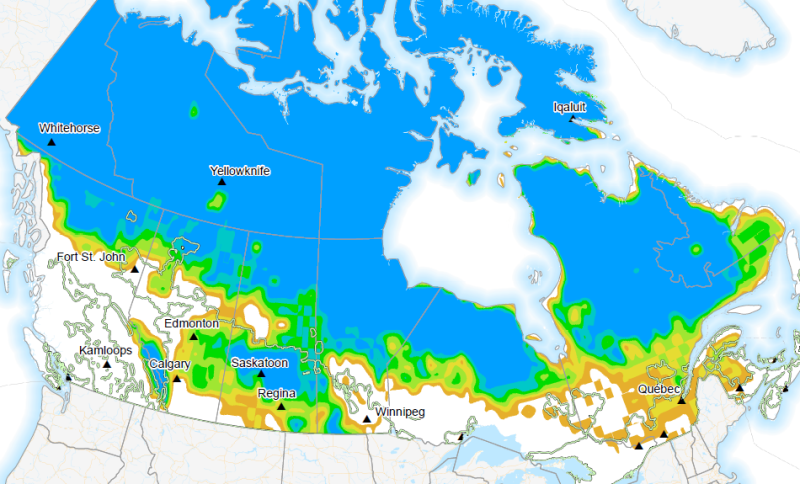b7e2321b-056d-4121-b3b5-556c6b85d9a6
Type of resources
Topics
Keywords
Contact for the resource
Provided by
Representation types
Update frequencies
status
-

Temperature is a key factor affecting the physiological development of field crops as well as crop yield and agricultural product quality achieved during the growing season. Crop responses to the temperature are characterized by three important cardinal temperature indices; the cardinal minimum temperature, maximum cardinal temperature, and optimum temperature for field crop production at which the plant growth and development can start, stop, and proceed at the maximum rate respectively. Agriculture is an important primary production sector in Canada. Agricultural production, profitability, sustainability and food security depend on many agrometeorological factors. Extreme weather events in Canada, such as drought, floods, heat waves, frosts and high intensity storms, have the ability to significantly impact field crop production. Agriculture and Agri-Food Canada (AAFC) and Environment and Climate Change Canada (ECCC) have together developed a suite of extreme agrometeorological indices based on four main categories of weather factors: temperature, precipitation, heat, and wind. The extreme weather indices are intended as short-term prediction tools and generated using ECCC’s medium range forecasts to create a weekly index product on a daily basis.
 Arctic SDI catalogue
Arctic SDI catalogue